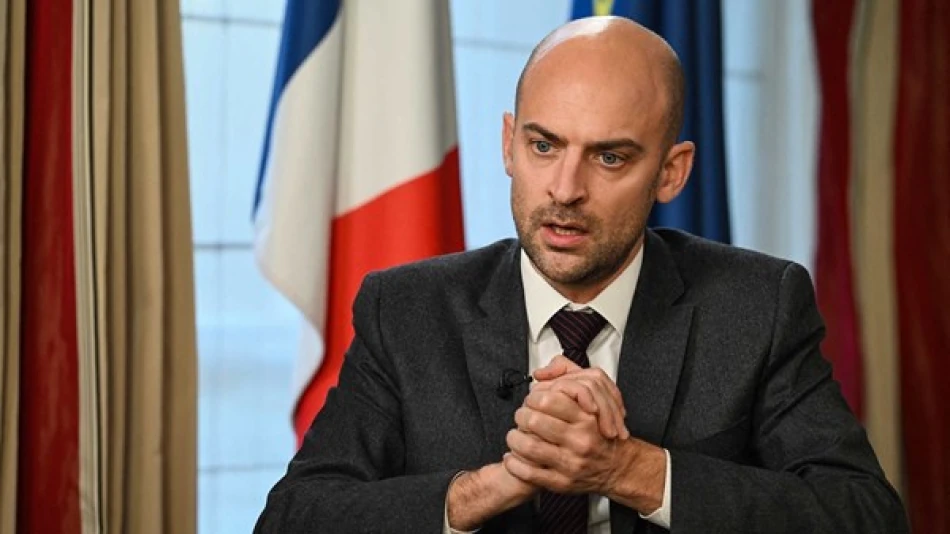
France: European Nations to Pledge Recognition of Palestinian Statehood
Europe Prepares Major Palestinian Statehood Push as France Leads G7 Break from US Policy
European nations are preparing to dramatically escalate diplomatic pressure on Israel by announcing new recognitions of Palestinian statehood at this week's UN conference in New York. French Foreign Minister Jean-Noël Barrot revealed that additional European countries will join France's September pledge to recognize Palestine, marking the most significant Western diplomatic shift on the Israeli-Palestinian conflict in decades and potentially fracturing the G7's unified stance.
The Momentum Behind European Recognition
France's announcement represents a seismic shift in European diplomacy, with Barrot stating that "the possibility of a Palestinian state has never been as threatened or as necessary as it is today." This assessment reflects growing European frustration with what they view as Israeli overreach in Gaza and accelerating settlement expansion in the West Bank.
The timing is strategically calculated. By announcing recognition during the UN General Assembly, European nations are leveraging maximum international visibility while the Gaza conflict remains in global headlines. Spain, Ireland, Poland, and Sweden have already signaled their intentions, creating a critical mass that could pressure other EU members to follow suit.
France's Historic G7 Break
France's move carries particular weight as it would become the first G7 nation to recognize Palestinian statehood during this crisis period. This breaks from the traditional Western approach of conditioning recognition on successful peace negotiations, instead using recognition as a tool to pressure Israel toward compromise.
The decision signals France's willingness to diverge from US policy, potentially straining transatlantic relations but aligning with growing European public sentiment critical of Israeli military operations in Gaza.
Strategic Calculations and Regional Partnerships
Barrot's comments reveal sophisticated diplomatic maneuvering beyond symbolic recognition. The French minister emphasized coordination with Saudi Arabia as a "key regional player" to develop a comprehensive post-war vision encompassing Gaza's reconstruction, security arrangements, and governance structures.
This Saudi partnership is crucial for several reasons. The kingdom's potential normalization with Israel remains on hold pending Palestinian statehood progress, giving European recognition efforts significant regional backing. Moreover, Saudi financial resources would be essential for any serious Gaza reconstruction effort.
The Ceasefire Connection
Barrot made a direct link between Palestinian statehood and current ceasefire negotiations, arguing that "it is illusory to believe we can achieve a permanent ceasefire and release of hostages without first establishing a political horizon." This represents a fundamental challenge to the Israeli position that security must precede political concessions.
Market and Geopolitical Implications
For investors and regional stability, this European diplomatic offensive introduces new variables into Middle Eastern calculations. Recognition by major European economies could legitimize Palestinian institutions for international financial engagement while potentially triggering Israeli economic retaliation against recognizing nations.
The move also signals Europe's growing willingness to pursue independent Middle East policies, potentially complicating US diplomatic efforts and creating new opportunities for regional powers like Turkey and Qatar to expand their influence.
Historical Precedent and Future Trajectory
European recognition follows historical patterns where international pressure eventually forced policy changes in protracted conflicts. The apartheid-era South Africa boycotts and Kosovo recognition campaigns demonstrate how coordinated diplomatic recognition can shift conflict dynamics.
However, the Palestinian case differs significantly due to Israeli military superiority, US backing, and complex territorial realities. European recognition may prove more symbolic than transformative unless accompanied by concrete economic and political consequences for continued settlement expansion.
The success of this European initiative will likely depend on whether it can attract broader international support, particularly from emerging economies, and whether it can maintain momentum beyond the current Gaza crisis cycle.
Most Viewed News

 Layla Al Mansoori
Layla Al Mansoori






